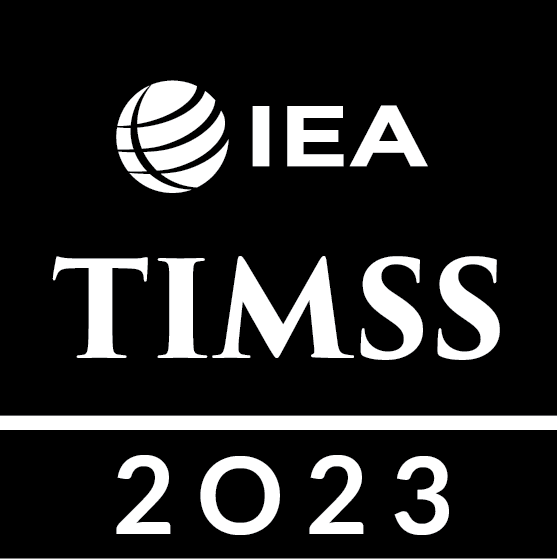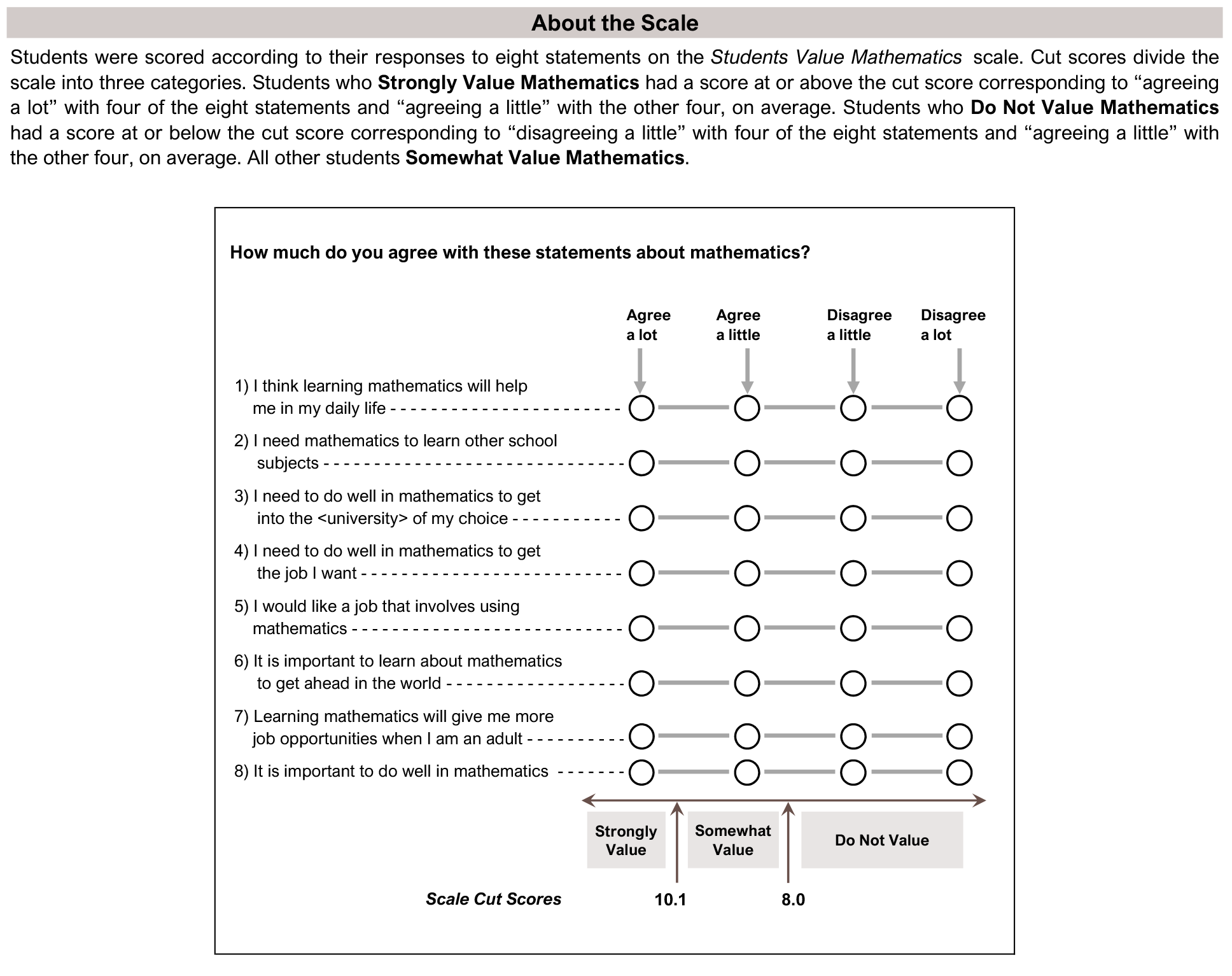Students Value Mathematics
Student Experiences and Attitudes
Students Value Mathematics
Students who value mathematics and see its relevance to their lives tend to have higher average achievement than those who do not. The items in the TIMSS 2023 Students Value Mathematics scale (Exhibit 6.2.7) asked eighth-grade students to indicate their level of agreement with eight statements about the value of mathematics. Based on their combined reports, students were classified into three groups: “strongly value,” “somewhat value,” or “do not value” mathematics.
Internationally, eighth-grade students tend to place at least some value on mathematics (Exhibit 6.2.8). Thirty-four percent of students reported that they “strongly value” mathematics, 41 percent reported that they “somewhat value” mathematics, and 24 percent reported that they “do not value” mathematics. There was a strong positive relationship between self-reported valuing of mathematics and average achievement in the subject area. Students who reported that they “strongly value” mathematics had an average mathematics achievement that was 40 points higher than those who “do not value” mathematics (494 vs. 454).
Read More
Students Value Mathematics
Very Confident in Mathematics
Somewhat Confident in Mathematics
Not Confident in Mathematics
This TIMSS context questionnaire scale was established in 2011 based on the combined response distribution of countries that participated in TIMSS 2011. To provide a point of reference for country comparisons, the scale centerpoint of 10 was located at the mean of the combined distribution. The units of the scale were chosen so that 2 scale score points corresponded to the standard deviation of the distribution.
( ) Standard errors appear in parentheses. Because of rounding some results may appear inconsistent.
An “r” indicates data are available for at least 70% but less than 85% of the students.
Scroll Up

